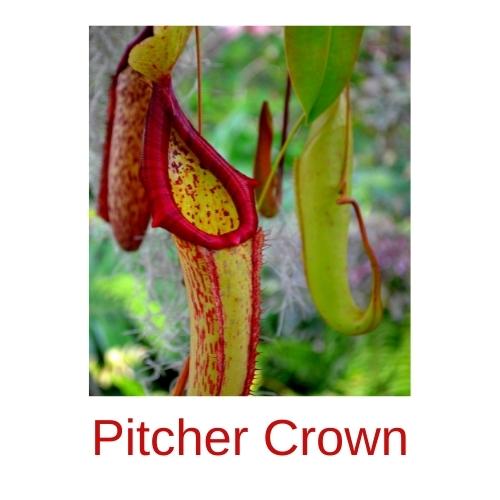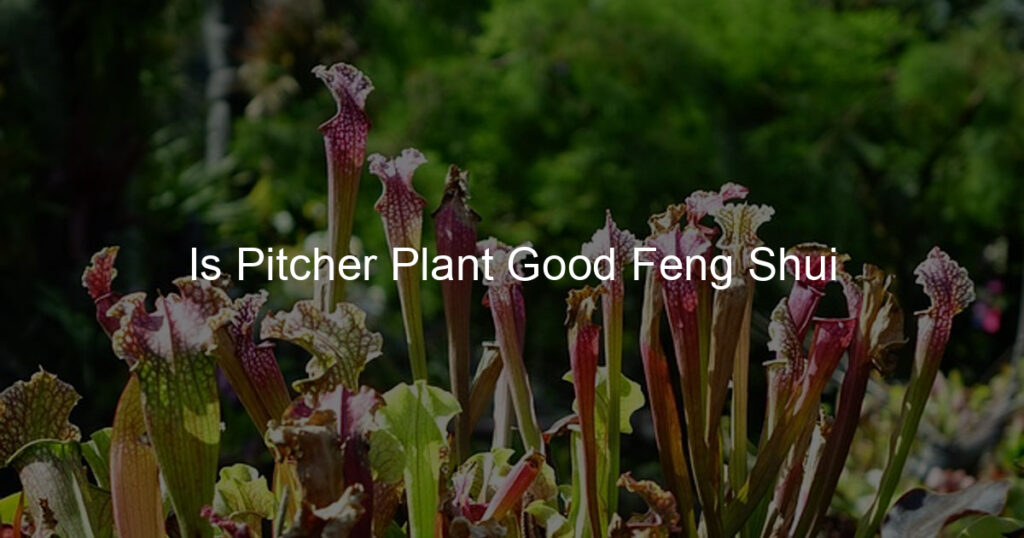For all of you pitcher plant lovers out there, have you ever thought about using your plants as pieces in a feng shui arrangement? Plants can bring so much life into a room, and the beautiful shape and detailed pitchers of the pitcher plant could create some incredible energy flow. In this blog post, we will explore how certain elements of feng shui can be intertwined with incorporating pitcher plants into our living spaces to enhance peace, harmony, and balance.
Is Pitcher Plant a lucky plant?
The Pitcher Plant has long had a reputation for providing good luck, especially when it’s grown or kept in the home. According to Chinese culture, this unique and intriguing houseplant is believed to bring prosperity and protection from negative energy. While there’s no definitive scientific evidence that suggests the plant brings good fortune, its interesting shape and seed dispersal technique has always been a source of fascination and intrigue.
Additionally, many believe keeping the plant close by will bring an abundance of happiness and luck into their home. Whether you choose to keep one in your living room or bedroom for luck, one thing is for sure—admiring this curious specimen certainly won’t do any harm!
Is pitcher plant good for feng shui?
Pitcher plants have a unique and beautiful appeal, making them popular for home decor. But one might be wondering if the pitcher plant is ‘feng shui friendly’ or not. Interestingly enough, many feng shui practitioners believe that the pitcher plant has great energy due to its symbolism of protection from negative chi, as well as attracting wealth luck.
Additionally, it can also represent deep symbolic meanings such as transcending life’s obstacles – making it a wonderful choice for nearly any environment! Therefore, if you’re looking to bring positivity into your space, adding a pitcher plant may be just what you’ve been needing.
Is the pitcher plant the luckiest plant inside the house?
Pitcher plants are one of a kind when it comes to houseplants. They are even more impressive indoors, with their unique pitcher shape and vibrant colors. Not only do they look amazing, but they also require minimal effort in care and maintenance.
Watering the plants by simply pouring water into the pitchers is enough to make them thrive! In addition to that, these stunning plants can survive in low light conditions and don’t need too much attention. With its charmingly weird appearance and foolproof care regime, the pitcher plant is one of the luckiest plants inside the house!
What is the luckiest plant?
While some might think that all plants have the same luck, there is one that stands out as the “luckiest plant” of them all – the four-leaf clover. These little green overachievers are a symbol of good fortune and bring plenty of cheer to anyone who finds one.
Whether it’s finding a mound of them in a secret meadow or plucking out a single perfect specimen, those lucky enough to come across the four-leaf clover leave the experience feeling energized and exclamation-filled. The Irish believe they get their extra luck from possessing a divine eye within each leaflet, so however you look at it, this special plant is undeniably in possession of some serious charm!
Is pitcher plant attracts money?
It’s an interesting thought for sure: Can pitcher plants attract money? After all, how can a small carnivorous plant bring us the wealth and fortune we seek? Unfortunately, pitcher plants, while fascinating organisms in their own right, aren’t magical money-makers.
Sure, having one around your home may bring you some luck or good vibes that could inspire you to achieve success — but at the end of the day, financial stability requires hard work and dedication. So while they may be beautiful and captivating in their own right, be sure to recognize that pitcher plants are not a direct route to bringing in cash.
Is the pitcher plant unlucky for home?
Considering the pitcher plant for your home can be a bit intimidating – after all, it does brim with insect-eating possibilities. But there’s no reason why having a pitcher plant should bring you bad luck – on the contrary!
While it definitely won’t make you any more popular amongst the bug population, this fascinating houseplant will add an exotic touch of drama to your space. Plus, the unique bucket or tube-shaped “pitchers” created by these evergreen plants offer an intriguing hint of nature in an indoor environment that you wouldn’t get from many other houseplants.
It might even encourage you to head outside and explore more carnivorous plants! With its colorful foliage and unusual shape, a pitcher plant can give your home a refreshing splash of life that is far from unlucky.
Conclusion
To wrap up, Feng Shui is all about harnessing positive energy and redirecting harmful energies away from inhabitants of a particular area. What makes the pitcher plant so special is that it helps to do just this! Its ability to filter out negativity as well as create a more balanced atmosphere makes it a great choice for anyone looking for ways to practice Feng Shui in their own lives. On top of that, many find pit plants aesthetically pleasing due to their unique and vibrant look – adding an extra layer of decorative appeal to any living space that simply cannot be matched by other options. All in all, when used correctly, pitcher plants can be a great way to bring balance and harmony into your home – helping you to embrace the principles of Feng Shui and make sure that positivity abounds in every corner!








